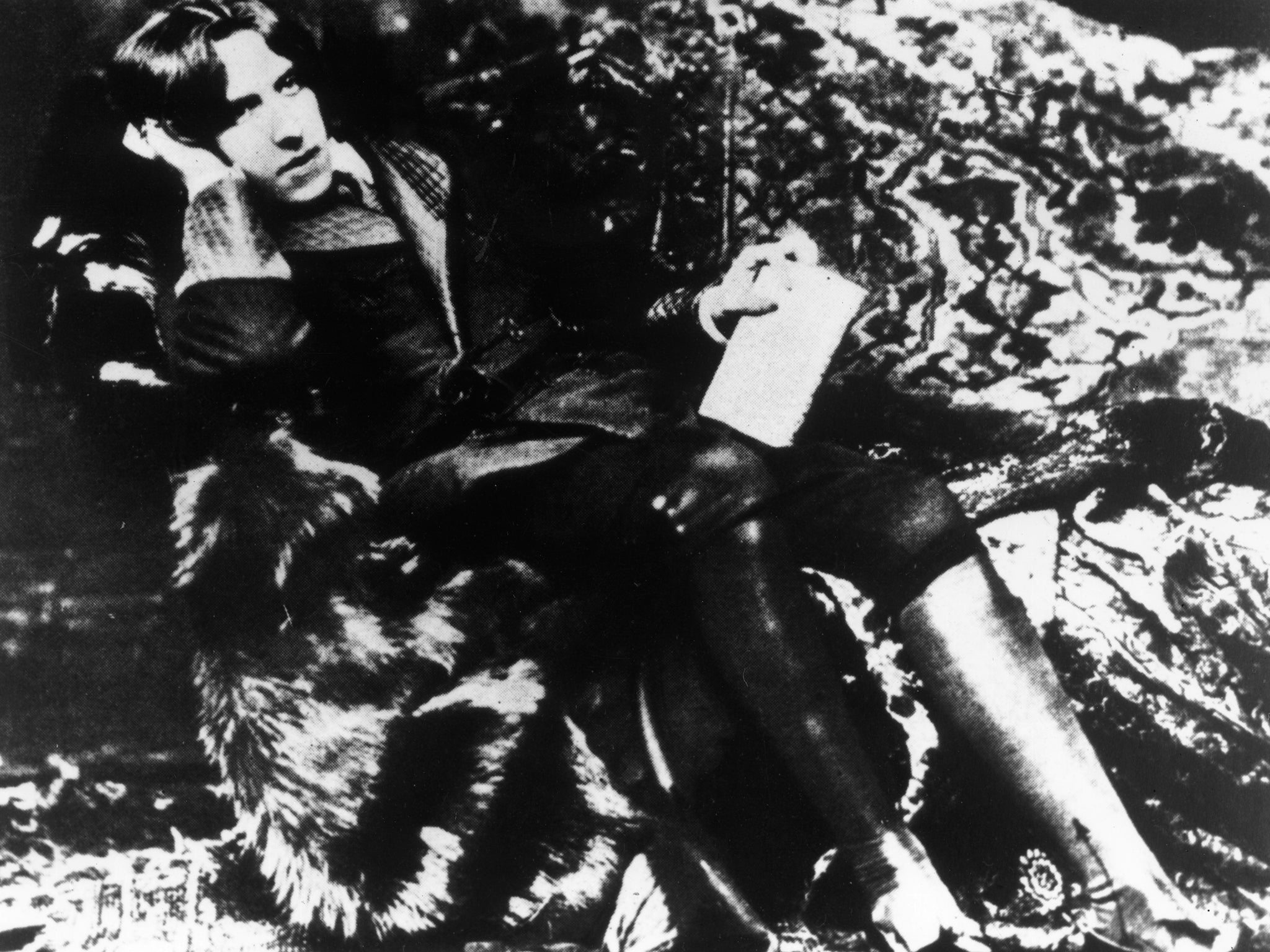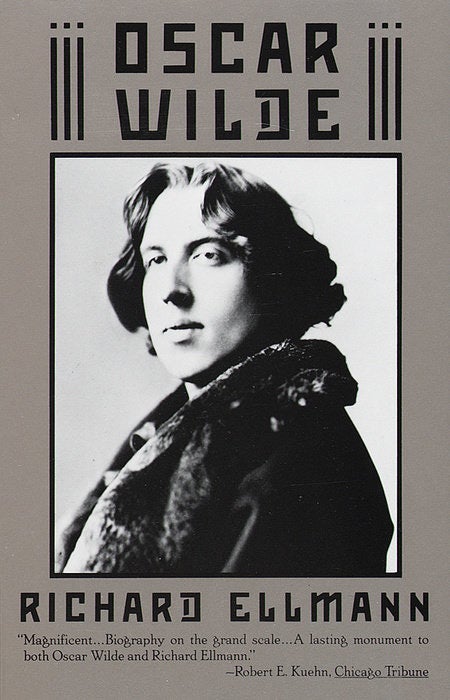Oscar Wilde and me: How did all these books get into my house?
Michael Dirda’s house is full from floor to ceiling with books, but there is a method to this madness. Just take a look at how he has amassed a collection on the late, great Oscar Wilde

Even though I gave away or sold perhaps 150 boxes of books in 2020, the stunned amazement of anyone who wanders into my basement or attic apparently remains, to quote Sherlock Holmes, the one fixed point in a changing age. Admittedly, only a small number of people crossed my threshold during this time of coronavirus restrictions, but most never even bothered to ask, “Have you read all these books?” They just stood dumbfounded, though a few were overheard to murmur, “I feel sorry for his poor wife” or, more rarely, “There, but for the grace of God, go I”. My living room, to my delight if no one else, can now pass as the ramshackle library of an impoverished London club circa 1895. More and more often, I settle into a shabby, cat-clawed wing chair with the day’s newspapers and periodically snort “Harrumph!” or grumble that the world is going to hell in a handbasket.
Last weekend, I was ensconced in said wing chair, idly daydreaming – my only real hobby – when I began to wonder: how did all these books manage to get into my house? Why do parts of this brick colonial resemble a Pennsylvania book barn or the stockroom at Politics and Prose?
The answer lies in that tired phrase “an inquiring mind”. Being at heart an autodidact, whenever I grow interested in a subject, a period of history or a writer, I try to accumulate all the important books associated with that subject, period of history or writer.
Fortunately for my sanity, I've never felt the insidious allure cast by the American Civil War, the careers of Napoleon and Hitler, or four centuries of Shakespeare commentary. These are areas of collecting and obsession that, vampirically, take over entire lives.
My own approach to books is actually quite reasonable, or so I tell myself. I prefer to read first editions, well-designed and printed hardcovers and works of primary scholarship. Who wouldn't? When, over the years, I've wanted to learn more about Jules Verne, fantasy and science fiction or the classic ghost story, I started by hanging out – either online or in person – with scholars and fans who generously shared their expert knowledge. One good book, I found, quickly leads to another.
Let me give an example.
My living room, to my delight if no one else’s, can now pass as the ramshackle library of an impoverished London club circa 1895
In the 1970s, I wandered into a bookstore and happened upon a shopworn copy of The Letters of Oscar Wilde, edited by Rupert Hart-Davis. Being familiar with a few of Wilde's epigrams – “Only the shallow know themselves” – I bought the 900-page collection for £15 and read it with great pleasure.
A decade later, I was an assistant editor at The Washington Post’s Book World when Richard Ellmann's Oscar Wilde was 1988's most eagerly anticipated work of literary nonfiction. After cajoling my colleagues into allowing me to review it, I prepared by reading The Picture of Dorian Gray and The Artist as Critic, Ellmann's previously published selection of Wilde's best reviews and essays, the most scintillating being his critique of realism, The Decay of Lying: “No great artist ever sees things as they really are.”

This bare-bones library of Oscariana – the superb letters, an insightful and beautifully written biography, Wilde's own delicious prose – opened a door into the 1890s. Wanting to learn more about fin de siecle London and its literature, I began to buy books. WB Yeats's autobiography, for instance, memorialises what he called “The Tragic Generation”, mainly the artist Aubrey Beardsley and several poets of the Rhymers' Club, all of whom died young, including the wistful and tubercular Ernest Dowson: “I have been faithful to thee, Cynara, in my fashion.” Memoirs by Bernard Shaw and Vincent O'Sullivan, as well as Max Beerbohm's caricatures, revealed additional facets of Wilde – notably his conversation, courtesy and increasing corpulence – while Robert Hichens's 1895 novel, The Green Carnation, neatly satirised him as the witty Esme Amarinth. Best of all, Karl Beckson's anthology, Aesthetes and Decadents showcased a panoply of the period's writers, among them Arthur Symons, author of The Symbolist Movement in Literature (which influenced the young TS Eliot), and the alcoholic poet Lionel Johnson, who introduced Wilde to Lord Alfred Douglas, and later died after falling off a bar stool.
Apart from his tantrum-filled relationship with Wilde, “Bosie” – as Douglas was nicknamed – lives in literary history for a single line of poetry: “I am the love that dare not speak its name.” Loud whispers, however, were fairly common. To learn more about the “Uranian” milieu of the 1880s and 90s, I acquired Rupert Croft-Cooke's exuberant Feasting With Panthers and Timothy d'Arch Smith's bibliographical Love in Earnest, as well as André Gide’s account of his early discipleship to Wilde. To further understand the Irish writer's French connections – he composed his sadomasochistic play, Salome, in French – I devoured Philippe Jullian's gossipy Oscar Wilde. About this same time, a trawl through a charity book shop unearthed nine of the 13 volumes of the 1890s' most notorious periodical, The Yellow Book. When Wilde was arrested for “gross indecency”, just a few weeks after the triumphant opening of his sparkling comedy The Importance of Being Earnest, he was (wrongly) thought to be carrying the latest Beardsley-illustrated issue of this hardback magazine. As for the subsequent courtroom drama itself, I naturally turned to H Montgomery Hyde's gripping The Trials of Oscar Wilde.
As the years rolled by, I unmethodically accumulated other books by or about the leading creative spirits of the late 19th century. When new studies of Wilde appeared, I reviewed some of them: Wilde's Women, by Eleanor Fitzsimons; Built of Books: How Reading Defined the Life of Oscar Wilde, by Thomas Wright; The Picture of Dorian Gray: An Annotated, Uncensored Edition, edited by Nicholas Frankel. In 2018, Matthew Sturgis brought out Oscar, a major new biography, which I ordered from England since, unfathomably, it's never been published in the United States. This past November, I briefly escaped the pandemic upsurge and Trumpian hysteria by immersing myself in its 800 engrossing (but badly proofread) pages. When I looked up, it was December.
At which point it was time to figure out a subject for a Christmas Eve essay. It seems, in retrospect, almost inevitable that I would think of Oscar Wilde’s fairy tales.
© The Washington Post
Join our commenting forum
Join thought-provoking conversations, follow other Independent readers and see their replies
Comments



Bookmark popover
Removed from bookmarks